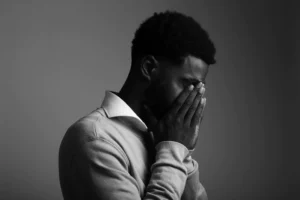This past Father’s Day I was awakened at 1 a.m. by what I thought was knocking at my door. Unfortunately, I thought correctly — it was my downstairs neighbor. She told me that water was leaking from my home into hers. The upstairs toilet had overflowed, leaked into my office and then into her son’s bedroom.
While it could have been much worse, what did happen was bad enough, made worse by the timing: The three-week period between the end of the school year and the start of my son David’s summer program. Not only did the clean-up crew and I have to work around him, but I spent most of the next week as a virtual prisoner in my bedroom.
By the end of that three-week period, if I had been asked if being a parent made me “happier,” I don’t know what I would have answered.
According to social scientists, the correct — or at least most common — answer is “no.”
The work of these social scientists was the subject of a piece by Newsweek writer Lorraine Ali that asked the question, “Does having children make you happy?” Ali cited work such as “Stumbling on Happiness” by Harvard’s Daniel Gilbert and “Gross National Happiness” by Arthur C. Brooks that casts considerable doubt on the idea of children as “bundles of joy.”
Gilbert’s research concluded that “marital satisfaction decreases dramatically after the birth of the first child — and increases only when the last child has left home.” And if you’re wondering why parents spend so much time shuttling their kids back and forth to various activities, it may be because “parent[s] are happier grocery shopping and even sleeping than spending time with their kids.” Brooks found that “parents are about 7 percentage points less likely to report being happy than the childless.”
Sociologist Robin Simon of Florida State is, if anything, more definitive in her conclusions: “Parents experience lower levels of emotional well-being, less frequent positive emotions and more frequent negative emotions than their childless peers….”
In contrast, “no group of parents — married, single, step or even empty nest — reported significantly greater emotional well-being than people who never had children.” According to Simons, these findings call into question the “cultural beliefs that children are the key to happiness and a healthy life.”
In case, you’re missing the point, she tells us “they’re not.”
Wow, being a parent really must create a partial vacuum with its mouth, which begs an important question: If it’s such a complete pain in the you-know-what, if it’s such an obstacle to happiness, why do so many people do it? (For that matter, how did the human race ever survive?) More than that, why are they willing to spend thousands of dollars and immeasurable emotional energy just to become parents? Then why do they often look back on the experience with fondness and treasure the memories?
It’s not, as Will Wilkinson of the Cato Institute writes, that we “lie to ourselves about ourselves … [and] close our eyes and cover our ears like children to the profundity of what we have given up.” I recall that a few months before my son was born, I told one of my best friends that I was going to love being a father. He told me that while I would always love my son I wouldn’t always love being a father.
He was right.
My experience is hardly atypical — on the contrary, “what we have given up” is a staple of our popular culture. For every “The Cosby Show” there’s at least one television show that makes you want to never have children and five more that make you wonder if being a parent is worth the tsuris. Yet people, long before they find out first-hand that they “love their children more than they thought possible,” pay tens of thousands of dollars for fertility treatments or private and/or overseas adoptions. Whatever is driving them, it’s not denial of the costs involved.
Neither is it, as Megan McArdle of the Atlantic Monthly suggests, being in the thrall of a “noble lie.” What evolutionary biologists call “parental investment” is, in the case of humans, too high to be overcome by society’s “tricking you into doing things that are not in your immediate self-interest” — even if the alternative is the “human race dying out in a single generation.”
The solution to this seeming conundrum lies, as Alan Jacobs of Wheaton College suggests, in contemporary notions about “happiness.” Jacobs quoted Bob Dylan who told Rolling Stone that “happiness” and “unhappiness” are “yuppie words.” According to Dylan what matters is “blessed or unblessed. As the Bible says, ‘Blessed is the man who walketh not in the counsel of the ungodly.'”
Dylan’s right. Similarly, the Greek word usually translated as “happiness,” eudaimonia, doesn’t even appear in the New Testament. Instead Scripture uses words like “blessed” (makarios) and “joy” (chara) which, given their biblical imperviousness to persecution and suffering, bear little resemblance to our notions of happiness.
What’s more, eudaimonia, in the classical Greek sense, bears, at most, only a passing resemblance to what we call “happiness.” It doesn’t refer to a subjective emotional state but an objective state of being: a combination of living well (virtue) and doing well (good fortune).
What’s true of the western tradition is also true of the eastern tradition: In the Bhagavad-Gita, Lord Krishna tells the warrior Arjuna that happiness lies not in some subjective state, much less seeking after our own satisfaction, but rather from a whole-hearted pursuit of goodness and harmony (sattva) and practice of spiritual disciplines (yoga).
And in the entirety of 3,000-plus years of human reflection on the nature of happiness you won’t find — at least until very (as in the past few years) recently — any suggestion that having children is antithetical to happiness.
That’s why Jacobs is right when he suggests that studies tell us more about our pre-occupation with our own happiness — i.e., our self-absorption — and the way we define happiness than the impact of children on the lives of their parents.
Our willingness to “do a cost-benefit analysis of having children” while foregoing “a cost-benefit analysis of eagerly participating in a culture of narcissism” is telling: For us, “happiness” consists of as-close-to-unlimited-as-is-possible choice. The “good life” consists in being free to do, come, and go as we please.
Obviously children — or any other responsibility or obligation to something other than our personal satisfaction — stand in the way of this freedom. We feel diminished and trapped when we don’t get what we want when we want it, even — no, make that especially — when “it” is a respite from the detritus of everyday life. Inasmuch as “happiness” = never, or at least rarely, feeling diminished and/or trapped, then, sure, being a parent (actually being anything besides a narcissist) is antithetical to happiness.
To put it mildly, there’s something impoverished about this understanding of “happiness” — impoverished but predictable given the West’s (and increasingly the rest of the world’s) emphasis on the subjective and the individual. We fancy ourselves as being self-aware, but about the only thing we are truly aware of is our moods — we know how we feel at a given moment but little else about ourselves. That’s why being tired and frustrated at times is “proof” that there’s something wrong with our lives.
Fortunately, this lack of true self-awareness doesn’t change everything about us: We know that parenthood is important and even fulfilling in ways that transcend our moods, which is why people want and treasure children for reasons that have nothing to do with denial or credulity.
We understand what being a parent costs — it’s life without them that we can’t fathom. Even when the toilet overflows in the middle of the night.
Copyright 2008 Roberto Rivera y Carlo. All rights reserved. International copyright secured.










